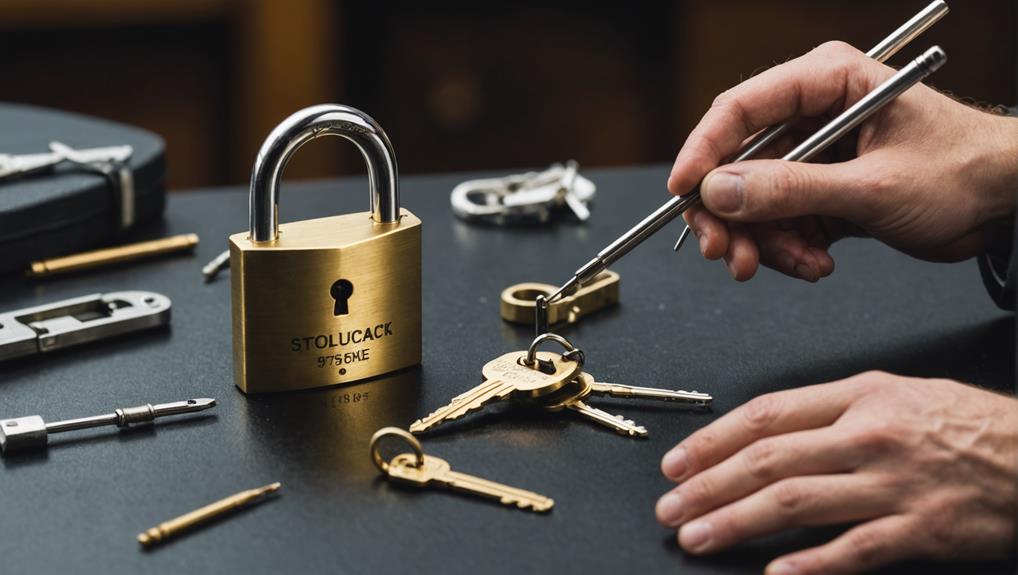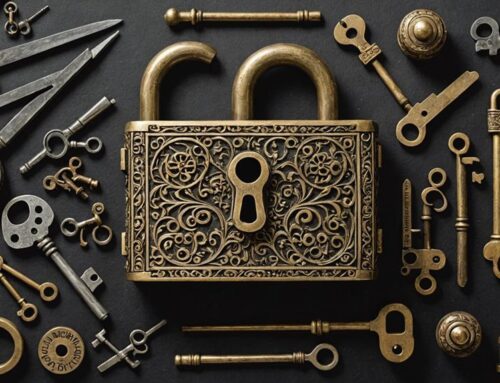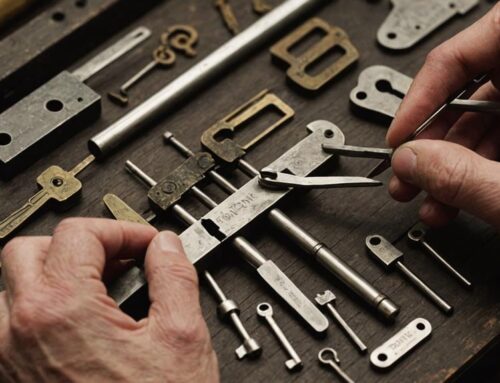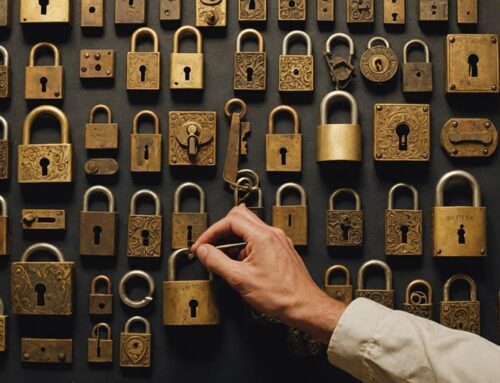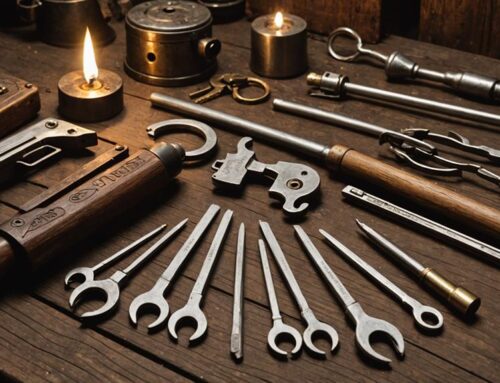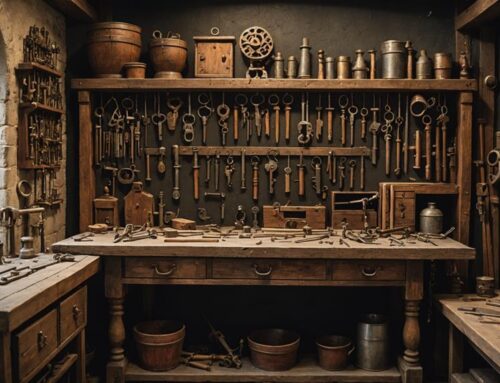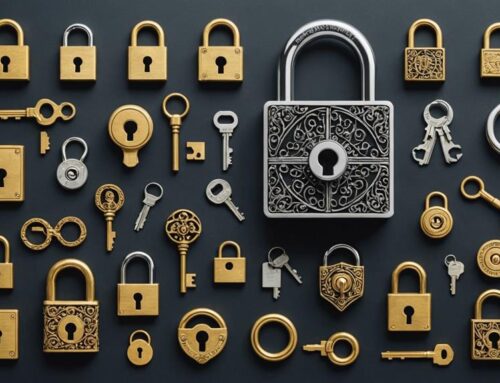When engaging in lock picking as a hobbyist, it's vital to grasp the legal regulations governing this activity. Remember, possession of lock picking tools is typically allowed for lawful purposes, but using them for unauthorized access is a big no-no that can lead to serious consequences. Always seek explicit permission from property owners before practicing your skills, and make certain you're using legal tools in accordance with local laws. Prioritize ethical considerations to uphold a positive reputation and avoid any legal missteps. Understanding these key aspects guarantees responsible and lawful lock picking practices.
Key Takeaways
- Possession of lock picking tools is legal for non-criminal purposes in many jurisdictions.
- Unauthorized access using lock picking tools can lead to severe penalties.
- Legal lock picking requires explicit permission from the property owner.
- Understanding local laws on lock picking is crucial for responsible practice.
- Ethical considerations and safety are essential in all lock picking activities.
Understanding Lock Picking Laws
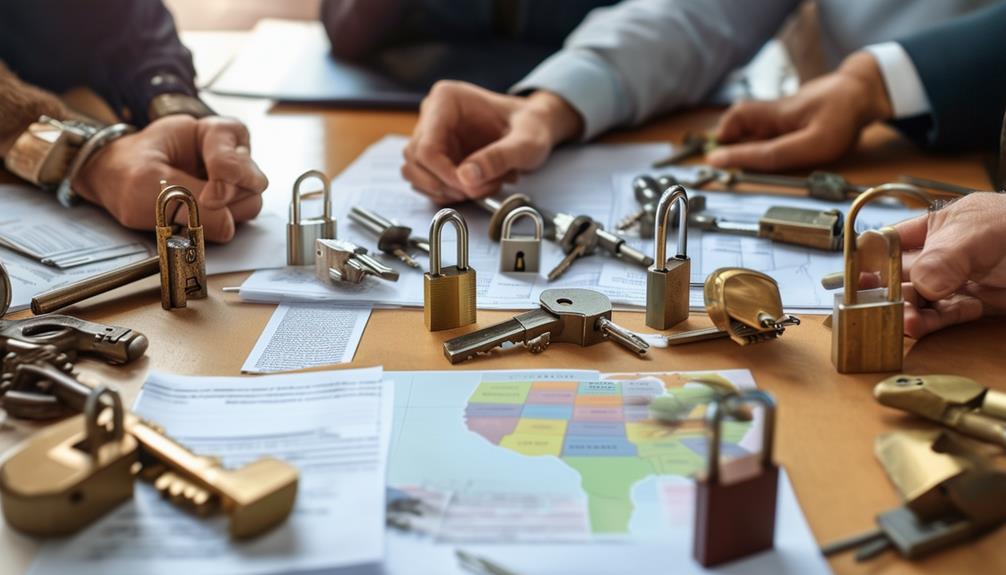
When it comes to understanding lock picking laws, it's vital to be aware of the legal implications surrounding this practice. Lock picking laws vary by jurisdiction, and it's important to know the rules in your area before engaging in this hobby.
In many places, owning lock picking tools is legal as long as they aren't used for criminal purposes. However, using these tools to gain unauthorized access to property or vehicles is illegal and can result in serious consequences. Practicing ethical lock picking requires a commitment to safe and legal techniques, which can help prevent misunderstandings with law enforcement and guarantee compliance with local regulations safe practices for all.
Lock picking laws often focus on the intent behind the act. If you're caught using lock picking tools with the intention of committing a crime, you could face charges related to burglary, trespassing, or possession of burglary tools.
Even if you have no malicious intent, carrying lock picking tools in certain circumstances, like near a bank or government building, can raise suspicions and lead to legal trouble.
To stay on the right side of the law, always use your lock picking skills responsibly and ethically. Familiarize yourself with the specific lock picking laws in your area to make sure you're practicing this hobby within legal boundaries.
Legal Restrictions on Lock Picking Tools
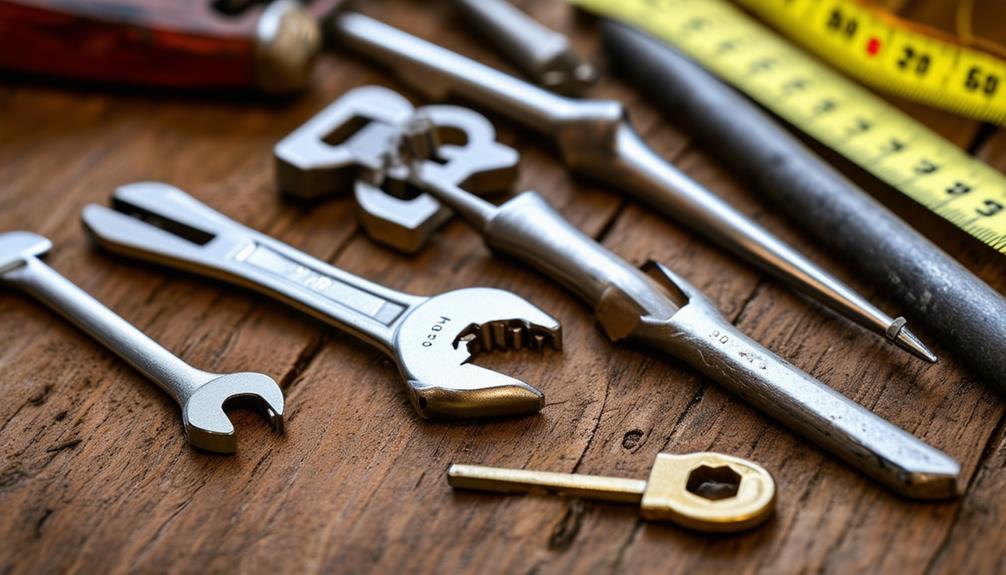
To understand the legal restrictions on lock picking tools, it is essential to be aware of the specific regulations that govern their possession and use. Lock picking laws vary by jurisdiction, and it is vital for hobbyists to be informed about what is allowed and what is prohibited. Possessing lock picking tools without a valid reason can lead to legal consequences such as fines or even criminal charges in some areas. Below is a table summarizing some common legal restrictions on lock picking tools:
| Jurisdiction | Possession Allowed | Purpose |
|---|---|---|
| United States | Yes | Legal uses only |
| United Kingdom | Yes | Locksmith or hobbyist use |
| Australia | Yes | Locksmith license required |
| Canada | Yes | Legal purposes |
| Germany | No | Only certified professionals |
Permissible Lock Picking Scenarios
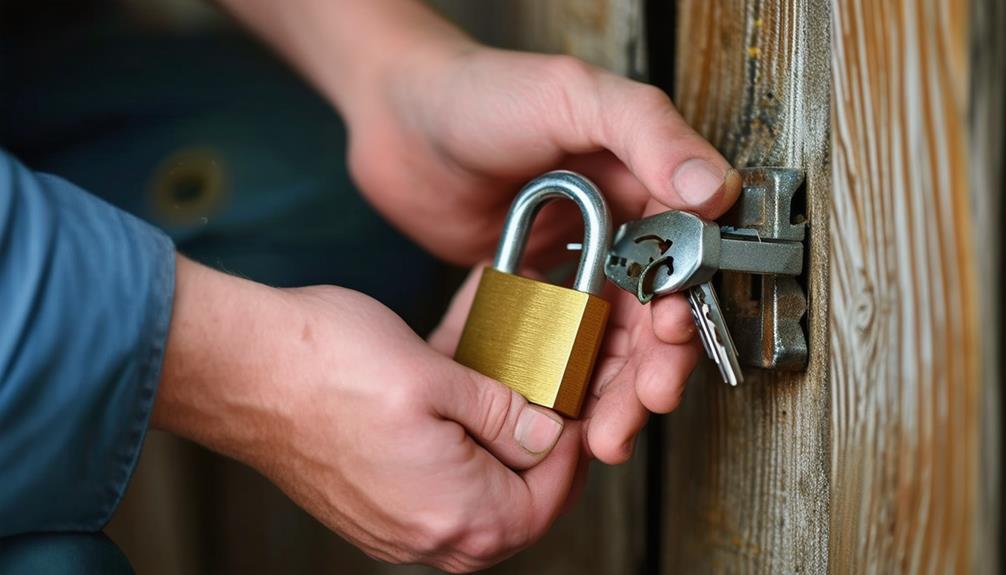
Now, let's talk about permissible lock picking scenarios.
When engaging in legal lock picking, it's important to contemplate ethical considerations, as well as the specific laws that vary by state.
Understanding the boundaries of when and where lock picking is acceptable can help you navigate this practice responsibly, especially when you're aware of lock picking laws in different states.
Legal Lock Picking
Legal lock picking refers to the act of picking a lock in situations where you have explicit permission to do so. This permission is essential, as engaging in lock picking without authorization can lead to legal consequences.
For instance, legal lock picking scenarios may include situations where you have forgotten the key to your own lock or when you're a locksmith performing your job duties.
It's significant to point out that attempting to pick a lock that you don't own or don't have permission to pick is illegal and considered trespassing or even breaking and entering in some cases.
Always verify that you have the right to pick a lock before attempting to do so, as unauthorized lock picking can result in criminal charges.
Ethical Considerations
When considering ethical aspects of lock picking, it's vital to assess the scenarios where engaging in this practice is permissible.
Ethical considerations play a significant role in determining when lock picking is acceptable. Here are some permissible lock picking scenarios to guide your understanding:
- Locksmith Training: Engaging in lock picking as part of an accredited locksmith training program where you have consent to practice on specific locks.
- Home Security Evaluation: Using lock picking skills to assess and improve the security of your own home or with explicit permission from the property owner.
- Lock Sport Competitions: Participating in lock picking competitions or events where it's done for sport, skill-building, and with mutual consent.
- Emergency Situations: Employing lock picking techniques to assist individuals in emergency situations, like being locked out of their property, where legal and ethical obligations are met.
Prohibited Lock Picking Activities
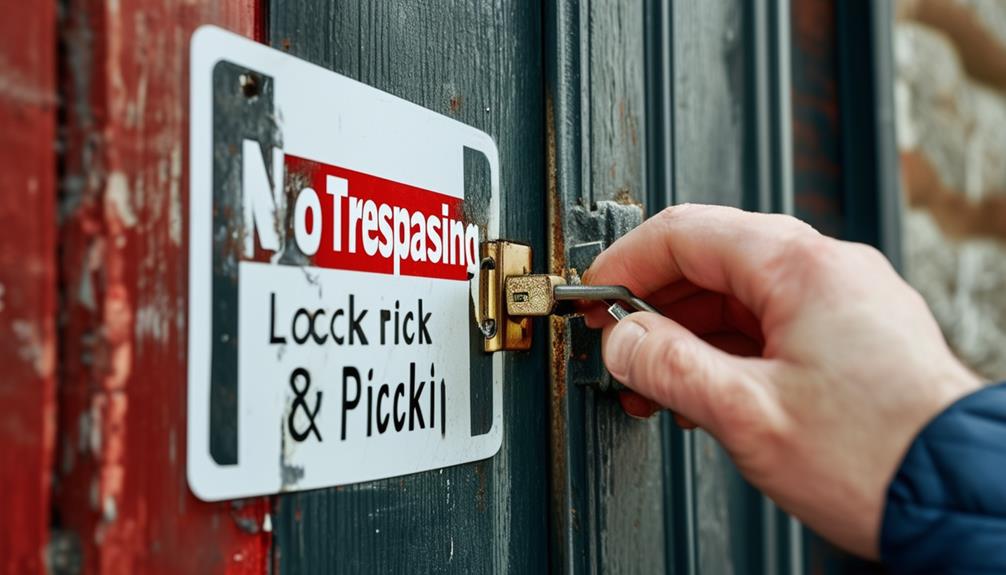
Engaging in unauthorized lock picking activities is considered illegal in many jurisdictions. Lockpicking laws vary, but generally, it's prohibited to possess lock picking tools with the intent to use them for unlawful purposes. These laws are in place to prevent burglary, theft, and other criminal activities that can be facilitated by lock picking.
In many states, even having lock picking tools in your possession may raise suspicions, especially if you can't demonstrate a legitimate reason for their use, such as understanding state-specific regulations.
It is essential to understand that even if your intentions aren't malicious, possessing lock picking tools without a valid reason can still lead to legal consequences. Law enforcement may interpret such possession as intent to commit a crime, which could result in charges being filed against you.
Additionally, attempting to pick locks that you don't own or have explicit permission to pick is also illegal. This includes trying to open doors, safes, or other secured items without proper authorization.
Always verify you have the legal right to practice your lock picking skills on a particular lock to avoid running afoul of the law.
Tips for Legal Lock Picking
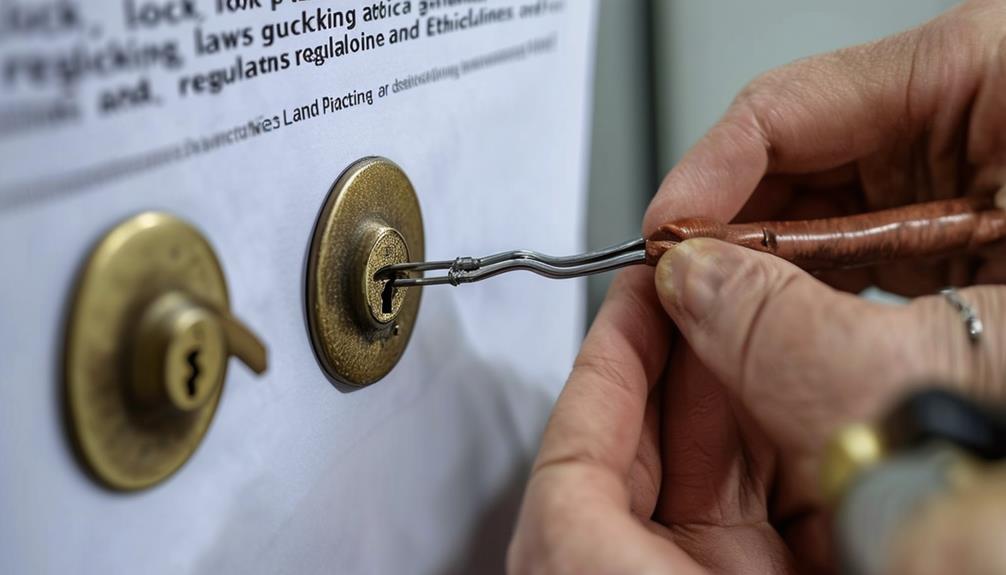
To guarantee you're engaging in lock picking activities within the bounds of the law, it's vital to understand and follow some key tips for legal lock picking. Here are some important guidelines to keep in mind:
- Obtain Permission: Always verify you have the explicit consent of the property owner before attempting to pick a lock, even if it's for practice or educational purposes. Engaging in lock picking without permission can lead to serious legal repercussions, so it's important to prioritize ethical considerations in your practice, as highlighted in ethical lock picking practices.
- Use Proper Tools: Utilize only legal lock picking tools and refrain from possessing any tools that could be considered unlawful in your jurisdiction.
- Stay Informed: Familiarize yourself with the specific laws and regulations regarding lock picking in your area to avoid any unintentional legal violations.
- Respect Privacy: Avoid picking locks on doors or properties where privacy is expected, such as bathrooms, bedrooms, or safes, to uphold ethical standards and legal boundaries.
Consequences of Illegal Lock Picking
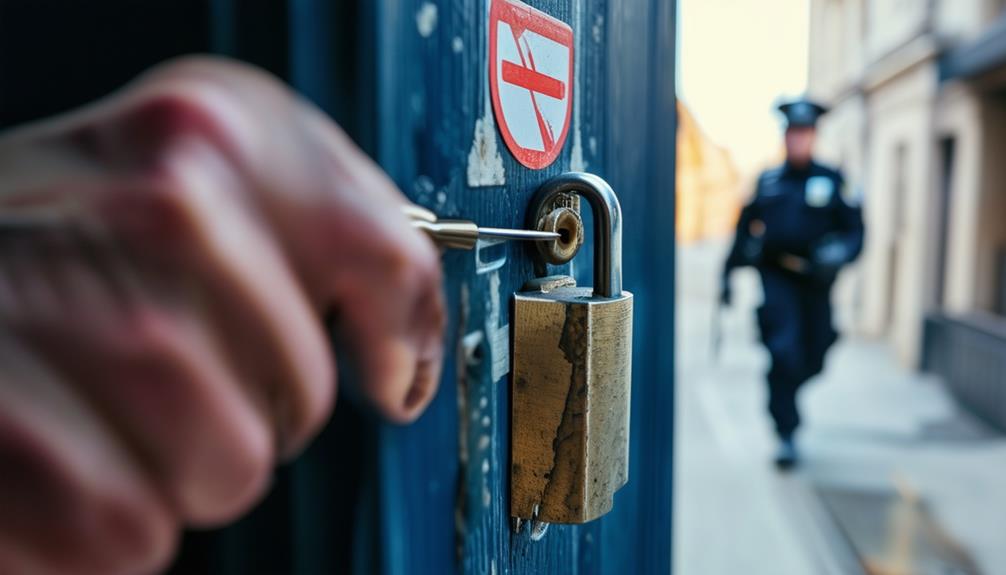
When it comes to illegal lock picking, you need to be aware of the potential legal penalties that can result from engaging in such activities. Many jurisdictions have specific laws regarding lock picking, which can include fines or even imprisonment for unauthorized access.
Not only are you risking criminal charges, but there's also the possibility of causing property damage while attempting to pick a lock unlawfully.
Additionally, it's essential to reflect on the ethical implications of bypassing security measures without authorization. Understanding the legal risks associated with lock picking can help you navigate this hobby safely and responsibly.
Legal Penalties for Picking
Illegally picking locks can result in severe legal consequences. Engaging in lock picking without proper authorization or consent can lead to various penalties that you should be aware of:
- Fines: You may face hefty fines if caught picking locks illegally. These fines can vary depending on the circumstances and the jurisdiction where the offense occurs.
- Criminal Charges: Illegal lock picking can lead to criminal charges being filed against you. This can result in a criminal record, which can have long-lasting implications on your future.
- Probation: In some cases, instead of or in addition to jail time, individuals caught picking locks illegally may be placed on probation. This involves strict monitoring and adherence to certain conditions.
- Imprisonment: One of the most severe consequences of illegal lock picking is imprisonment. Depending on the severity of the offense and the laws in place, you could face time behind bars for this illegal activity.
Property Damage Risks
Picking locks without proper authorization not only comes with legal consequences but also poses significant risks of property damage.
When engaging in lockpicking activities without the necessary legal permission, there's a high likelihood of causing harm to the locks themselves, the doors or entrances where the locks are installed, and potentially even the overall security systems of the premises.
Illegal lockpicking can result in broken or irreparable locks, leading to the need for expensive replacements. Additionally, tampering with locks unlawfully may cause damage to the surrounding areas, such as scratches, dents, or other forms of harm to the property.
It is essential to understand that the legality of lockpicking is vital not only to avoid legal trouble but also to prevent unintended property damage.
Ethical Considerations in Picking
Have you ever considered the ethical implications of engaging in lock picking without proper authorization?
When it comes to ethical considerations in picking, it's vital to comprehend the potential consequences of illegal lock picking. Here are some points to ponder:
- Violation of Privacy: Unauthorized lock picking can lead to intruding into someone's private space, violating their sense of security and privacy.
- Legal Ramifications: Engaging in lock picking without consent is illegal in many jurisdictions and can result in criminal charges and penalties.
- Trust and Reputation: Being known as a lock picker without authorization can damage your reputation and erode trust within your community.
- Safety Concerns: Inexperienced lock picking can cause damage to the lock, leading to potential security vulnerabilities that could endanger the safety of individuals and property.
Considering these ethical aspects is essential for every hobbyist involved in lock picking to guarantee responsible and lawful behavior.
Frequently Asked Questions
Can I Use Lock Picking Skills in an Emergency Situation?
In an emergency, your lock picking skills could come in handy. They might help you open doors to reach safety or assist someone in need.
Remember to only use your skills in legitimate situations where you have permission to access the locked area. Avoid any actions that could be considered illegal or unethical.
Stay mindful of laws and regulations that may apply to your actions during emergencies.
Are There Any Age Restrictions for Practicing Lock Picking?
Imagine a world where age is just a number when it comes to lock picking.
Fortunately, in reality, age restrictions do exist. Always check your local laws, as some places may require you to be a certain age to practice lock picking.
Being aware of these regulations can keep you out of trouble and guarantee you enjoy your hobby responsibly.
Is It Legal to Pick Locks on My Own Property?
Yes, it's generally legal to pick locks on your own property.
However, it's vital to check local laws as they can vary.
Make certain you have permission to practice on rental properties or shared spaces.
Always use your lock picking skills responsibly and ethically to avoid any potential legal issues.
Can Lock Picking Tools Be Carried While Traveling?
While traveling, you can carry lock picking tools if they're legal in your destination.
It's important to research and comply with local laws.
Did you know that according to a survey, 43% of locksmiths reported being called to help people who were locked out of their own homes?
Are There Specific Regulations for Lock Picking Competitions?
Yes, there are specific regulations for lock picking competitions.
Competitions often have rules regarding the types of tools allowed, the lock difficulty level, and the time limits for picking.
Make sure to review the competition guidelines before participating to guarantee you comply with all regulations and have a fair chance at showcasing your skills.
Following the rules will help maintain a level playing field for all participants.
Conclusion
To sum up, remember to always lock pick responsibly and within the bounds of the law. Make sure to brush up on your local regulations before diving into this hobby. Remember, it's better to be safe than sorry. So, keep your tools in check, pick those locks like a pro, and stay on the right side of the law. Happy picking, and may the locks be ever in your favor!

